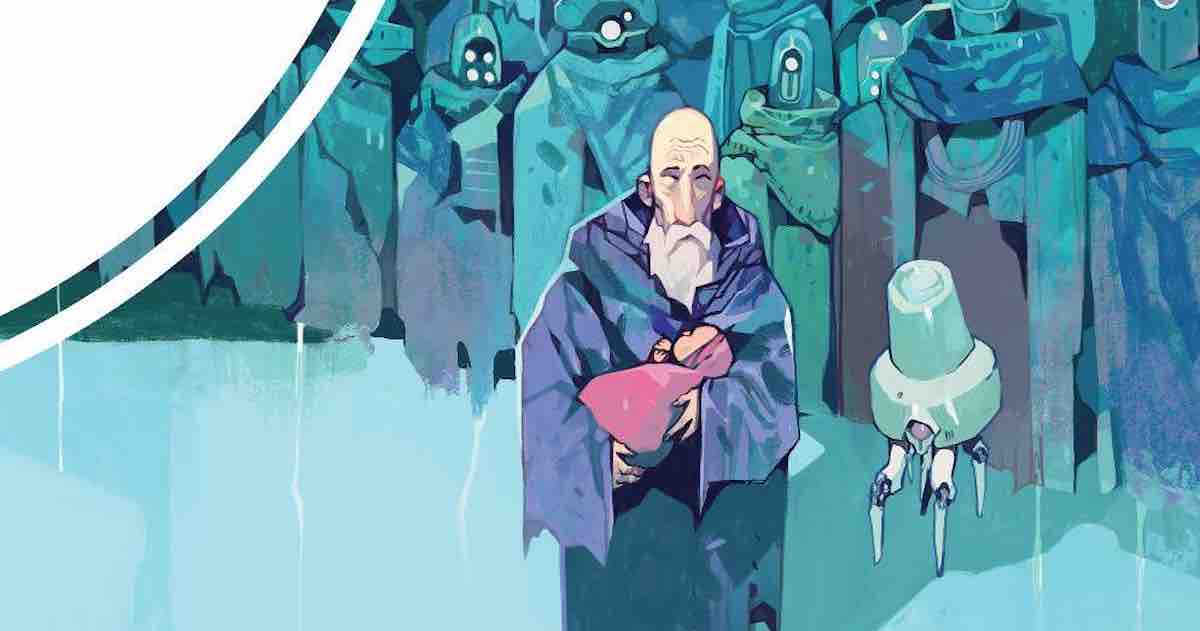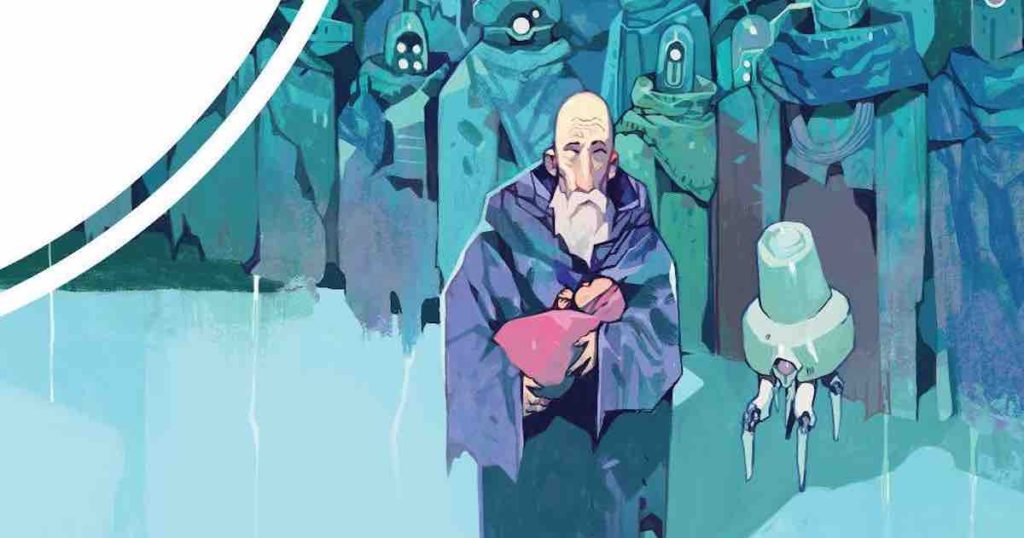
Origins #6 is published by BOOM! Studios, written by Clay McLeod Chapman, with art by Jakub Rebelka, colors by Patricio Delpeche, and letters by Jim Campbell. With Chloe falling under the sway of The Network, David finds himself in the darkest situation yet. Deprived of his only constant, can David still find a way to defy The Network and preserve humanity?
Nailing the tone of a story’s finale can be a difficult achievement. If the final installment doesn’t ring true with what the story has previously presented, that all-important last step can feel false and ill-fitting. This challenge because doubly difficult when a story attempts to deliver a multilayered, nuanced narrative blending despair, tragedy, and hope. Yet, this is exactly the task that the creative team behind Origins #6 set for themselves.
With The Network twisting Chole’s familiar features into a perverse parody of the visage of kindness that readers have grown accustomed to, David is faced with the demand to turn over humanity’s last chance at rebirth. As every demand and insult is hurled at him, David struggles with this final failure to protect the one who had protected him for longer than he’d been alive. But even as he struggles with the overwhelming guilt of these verbal assaults spewing from his greatest friend, a small hope may yet stir.
Rarely has the desire to spill all the spoilers on a series been greater for me than now. As I type this, Origins #6’s finale still has my cheeks wet with tears. And don’t worry, I will resist the urge to ruin the amazing six-issue journey you have been on.
The final confrontation with The Network, how the conflict resolves itself, and the aftermath are delivered perfectly by Chapman’s brilliant writing. The ending is as delicate a balance of loss, pain, and, ultimately, as much hope as the five issues that preceded it. I never saw this ending coming, but I can’t imagine any other now that I’ve read it. It’s a masterpiece of emotional writing.
The art in Origins #6 continues to deliver its narrative with all the emotional impact one can ask for. This is especially true of the book’s opening. The way artist Rebalka chooses to design Chloe during this confrontation does a perfect job of transforming her into a dark mirror of her former strength, compassion, and hope.
I was thoroughly surprised by the way colorist Delpeche chose to treat this moment as well. Rather than harsh reds, what I would expect for the seething anger The Network fosters for its father, the colorist instead goes with muted greens for much of this sequence. While this color choice lacks the intensity of the reds I expected, it instead creates a more sinister, creeping anger. A more calculating malevolence is created through this inspired color choice.
Wrapping up our look at the book’s visual presentation is Campbell’s lettering. Campbell’s biggest decision here is the choice for Chloe’s robotic text. By utilizing a squarer, more robotic-looking font for her lines here, Campbell puts the finishing touch on Chloe’s perverse transformation.
When all is said and done, Origins #6 delivers an ending to its story that is as flawless as it is unexpected. If someone asks me if there is a comic story I wish I could have erased from my mind so I could have the experience of reading it again for the first time, it would be Origins. And so much of that is because of how perfectly this issue ends this magnificent story. But, since that is not possible, I’ll just have to be like David and say, “Tell me the story, again.”
Origins #6 is available now wherever comics are sold.
Origins #6
TL;DR
Origins #6 delivers an ending to its story that is as flawless as it is unexpected. If someone asks me if there is a comic story I wish I could have erased from my mind so I could have the experience of reading it again for the first time, it would be Origins. And so much of that is because of how perfectly this issue ends this magnificent story. But, since that is not possible, I’ll just have to be like David and say, “Tell me the story, again.”





